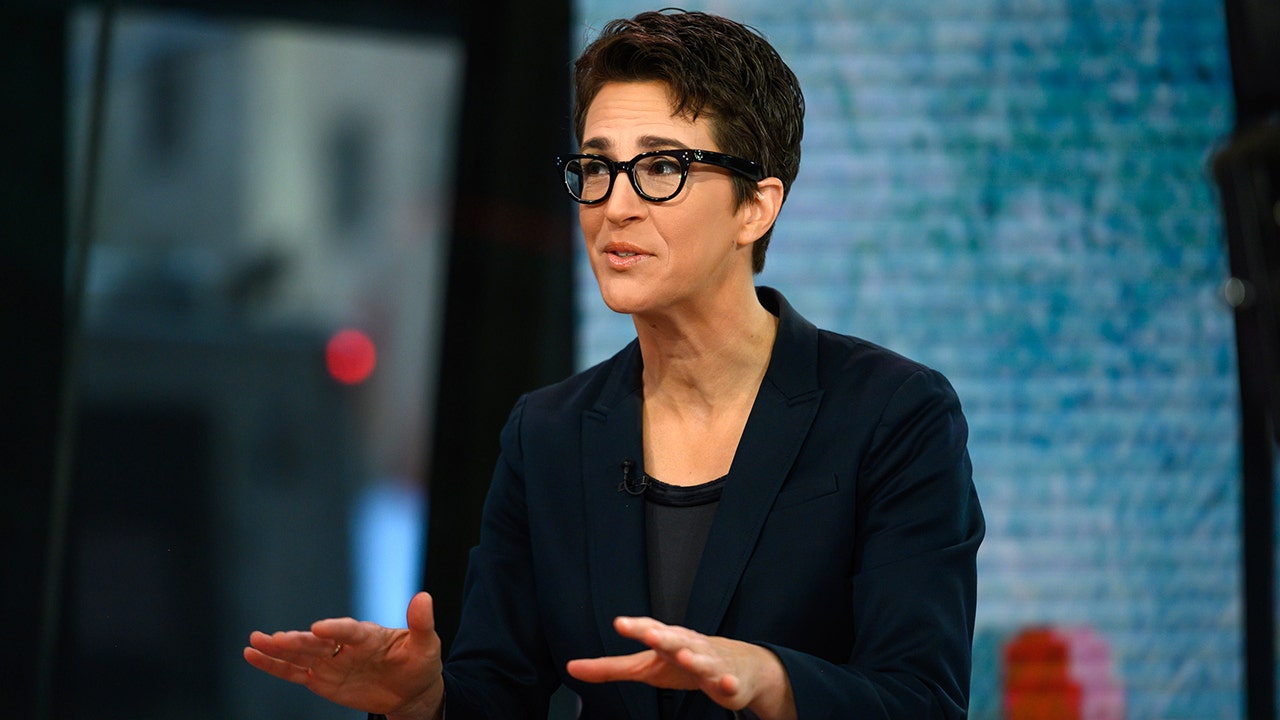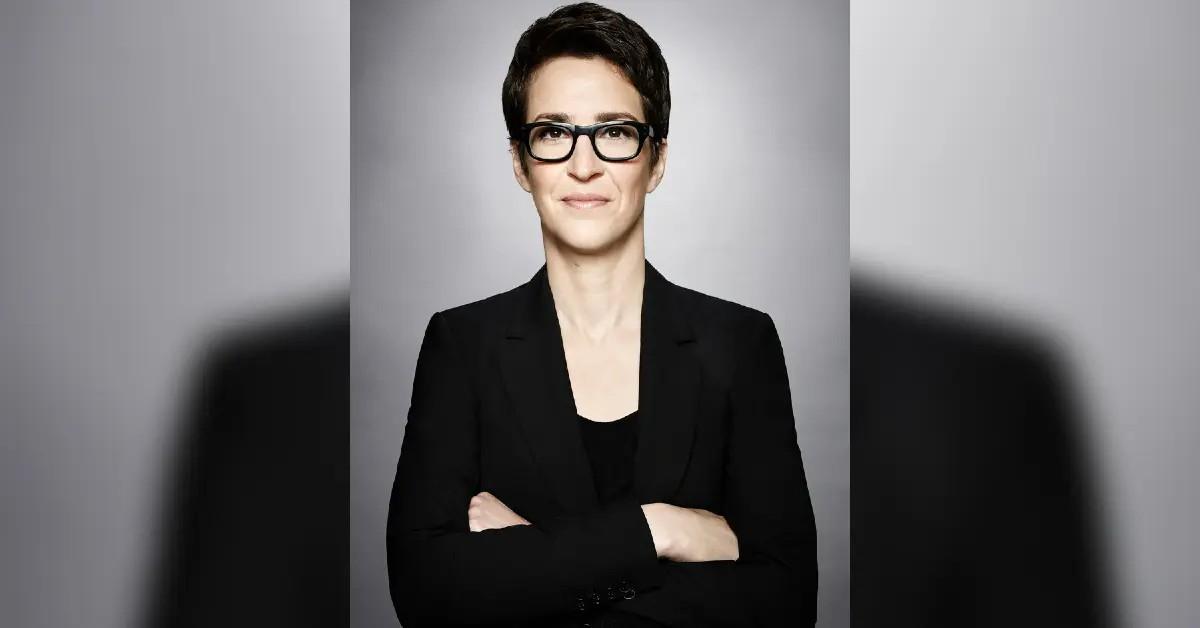In a stunning series of events that have rocked the media world, a dramatic shift at MSNBC has led to the loss of several high-profile shows and the controversial firing of key hosts. The tipping point came when Rachel Maddow, the network’s longtime star, broke her silence on-air and delivered a bombshell statement about recent programming decisions. As ratings decline and internal tensions rise, the network is grappling with its most significant shake-up in years.
Morning Joe’s Struggles: A Tale of Declining Ratings
Since President Donald Trump’s 2024 election victory, Morning Joe—the long-running MSNBC show hosted by Joe Scarborough and Mika Brzezinski—has faced a significant drop in viewership. According to Nielsen data, the show’s audience has fallen by over 40%, from 1.1 million viewers before the election to just 651,000 by early June 2025. In the coveted 25–54 demographic, the show has seen a near 50% decline, going from 123,000 viewers to only 67,000.
Despite these numbers, MSNBC has insisted that Joe and Mika are “categorically not going anywhere,” with spokesperson Richard Hudock making it clear that the duo remains a key part of the network’s strategy. But behind the scenes, staffers are questioning why Morning Joe continues to receive such strong support while other shows are canceled or reduced in prominence.

The Fallout: A Pattern of Erasure
In stark contrast to the sustained support for Morning Joe, MSNBC has made drastic cuts to its evening and weekend programming, particularly affecting several of its most visible non-white hosts. Joy Reid, the host of The ReidOut, was removed from her primetime slot, while legal analyst Katie Phang and international correspondent Ayman Mohyeldin lost their time slots entirely. The network’s decision to close its Miami operation, which included shows like José Díaz-Balart Reports, has also raised eyebrows, although Díaz-Balart will remain with NBC News.
This purge of non-white voices from MSNBC has sparked outrage both internally and externally, with many critics accusing the network of inconsistency and ideological bias. Insiders say the moves are part of a larger cost-cutting strategy under the leadership of Rebecca Kutler, who took over as MSNBC’s president. But these decisions have raised concerns about the network’s commitment to diversity and its willingness to listen to its most outspoken and diverse voices.
Maddow Breaks the Silence: A Rare Stand for Accountability
Rachel Maddow, who has long been considered the conscience of MSNBC, used her Monday night broadcast to address the shake-up head-on. In a candid and impassioned statement, Maddow made it clear where she stood on the network’s recent decisions.
“I do not want to lose Joy as a colleague here at MSNBC,” Maddow said, her tone heavy with concern. “And personally, I think it is a bad mistake to let her walk out the door.”
But Maddow didn’t stop there. She continued, pointing out the disproportionate impact these changes had on non-white hosts at the network. “It is also unnerving to see that on a network where we’ve got two—count them—two nonwhite hosts in primetime, both of them are losing their shows,” Maddow said. “That feels worse than bad, no matter who replaces them. That feels indefensible. And I do not defend it.”
The reaction in the control room was immediate. Sources claim that MSNBC executives were caught off-guard, and producers were unsure how to respond. Yet, no one intervened, as Maddow was speaking what many of them were already thinking.

Internal Fallout: Staff Speak Out
Multiple sources within MSNBC, speaking anonymously to The Intercept and Vanity Fair, have painted a picture of growing frustration and confusion at the network. One longtime producer described the mood as “toxic” and “ideologically inconsistent,” pointing out that these decisions seem to directly contradict the network’s supposed progressive values.
“Joy was one of the only voices willing to speak boldly on issues like Gaza, police brutality, or voter suppression without filtering through corporate fear,” the producer said. Another staffer echoed the sentiment, saying, “There’s a quiet pattern emerging. And a lot of us are paying attention.”
Critics like former MSNBC host Tiffany Cross, whose own show was canceled in 2023, have also spoken out. On the Win With Black Women podcast, Cross claimed that Reid’s ousting was part of a larger pattern of silencing powerful voices. “The real problem was her courage—her willingness to speak truth to power, especially on race and foreign policy. That made people uncomfortable,” Cross stated.
Tensions Grow: Why Does ‘Morning Joe’ Stay Untouched?
One of the most widely discussed points is the continued support for Morning Joe, despite its declining ratings. “You know whose ratings are actually terrible and still protected? Joe and Mika,” Cross remarked. “They went to Mar-a-Lago. They kissed the ring. And they’re still being elevated.”
This comment echoes growing frustration with the network’s priorities. Critics question how MSNBC can justify keeping Morning Joe—which has seen substantial ratings decline—while canceling shows hosted by passionate, high-profile figures like Reid.
MSNBC’s Efforts at Damage Control: Ratings Data Shared
Trying to manage the backlash, MSNBC released internal ratings data to The New York Post, claiming that Morning Joe had shown some improvement since the new year. According to the network, total viewership increased from 587,000 post-election to 684,000 after Trump’s inauguration. However, critics argue that this rebound is insufficient and that the network is “rewarding decline” instead of addressing the real issues.

Rebecca Kutler’s Strategy: Cost-Cutting or Political Culling?
The shake-up at MSNBC is seen as part of a larger strategy by Rebecca Kutler, the new president, to cut costs, consolidate resources, and rebrand the network for the streaming era. However, the decision to remove Reid, Phang, and Mohyeldin has raised suspicions that there may be an underlying political agenda, with some insiders speculating that Reid’s independent voice, especially on issues related to race and foreign policy, was seen as too controversial by network leadership.
“You can’t say you support Black voices when those voices disappear the moment they push boundaries,” one senior staffer remarked, further stoking the controversy surrounding the network’s choices.
Maddow’s Legacy on the Line: The Battle for MSNBC’s Soul
For Rachel Maddow, this debate is deeply personal. “This isn’t about friendship. This is about the soul of this network,” she said, making it clear that the recent decisions go beyond personal loyalty—they reflect a broader ideological crisis at the network. Maddow’s strong words electrified social media, with #KeepJoyReid trending nationwide within minutes.
Petitions to reinstate Reid quickly gained traction, with over 215,000 signatures within 48 hours. Commentators from both progressive and centrist circles applauded Maddow for making a stand that was, in their view, a rare and necessary defense of journalistic integrity.

What Happens Next?
As tensions within MSNBC continue to grow, all eyes are on the network’s leadership and their next moves. While no immediate reversals are expected, the internal backlash has made executives more cautious about future decisions. Joy Reid, meanwhile, has remained silent but posted a cryptic message on Instagram featuring a Maya Angelou quote: “When someone shows you who they are, believe them the first time.”
The future of Reid, as well as other canceled hosts, remains uncertain. The network’s handling of this controversy will be critical as it tries to regain trust and navigate the shifting media landscape.
Conclusion: The Fight for Media Accountability
The clash between Rachel Maddow and MSNBC’s decision-makers over the firing of Joy Reid and other key figures represents a crucial moment for the future of media accountability. With influential voices like Maddow speaking out against the network’s moves, this controversy has sparked a wider conversation about the role of diversity, integrity, and independence in modern journalism.
As the battle for the soul of MSNBC continues, it’s clear that the decisions made today will reverberate for years to come. Whether the network will learn from this experience or double down on its cost-cutting and consolidation efforts remains to be seen, but for now, the conversation about media accountability, ideological consistency, and the treatment of outspoken voices in journalism is far from over.
